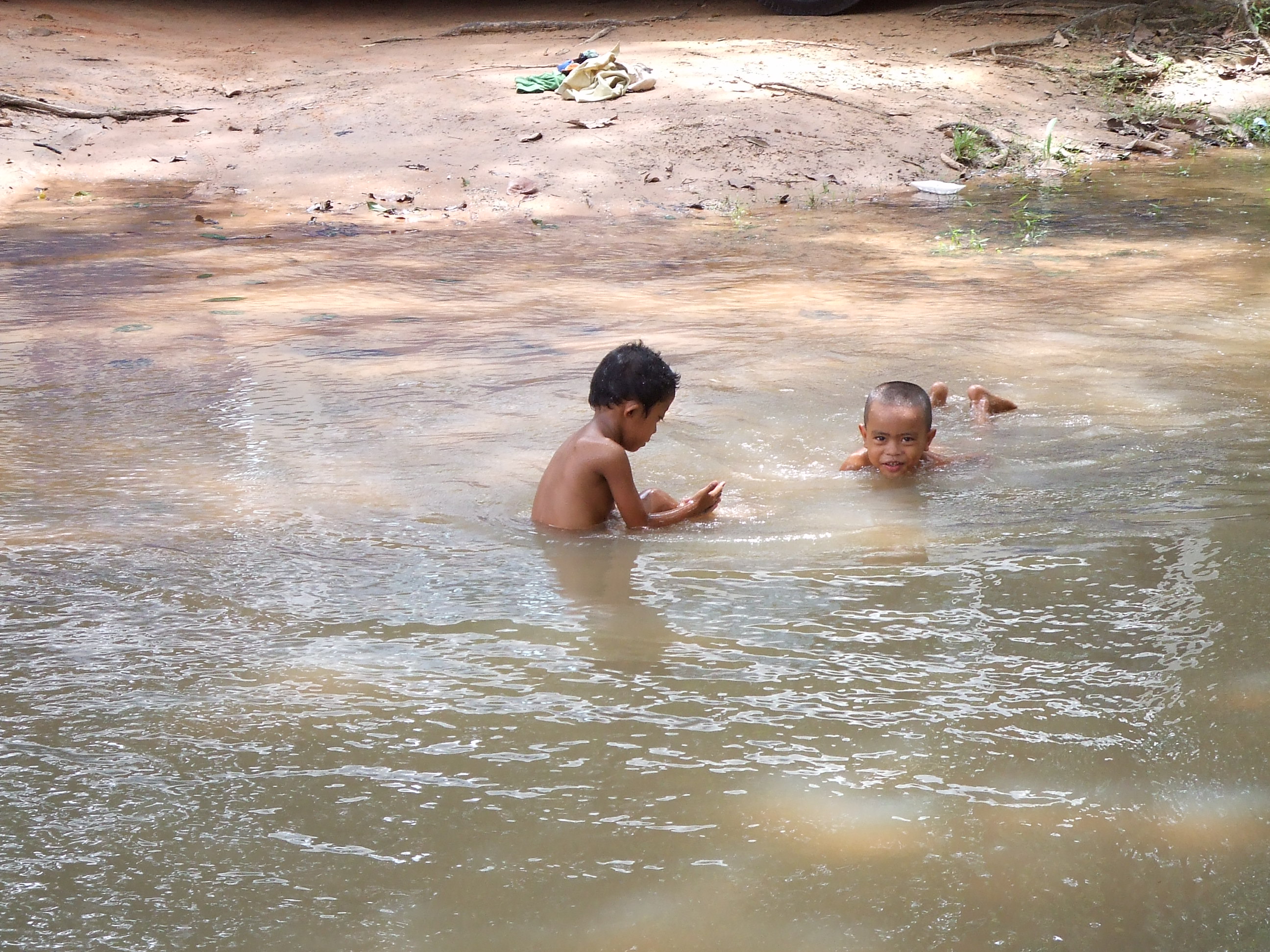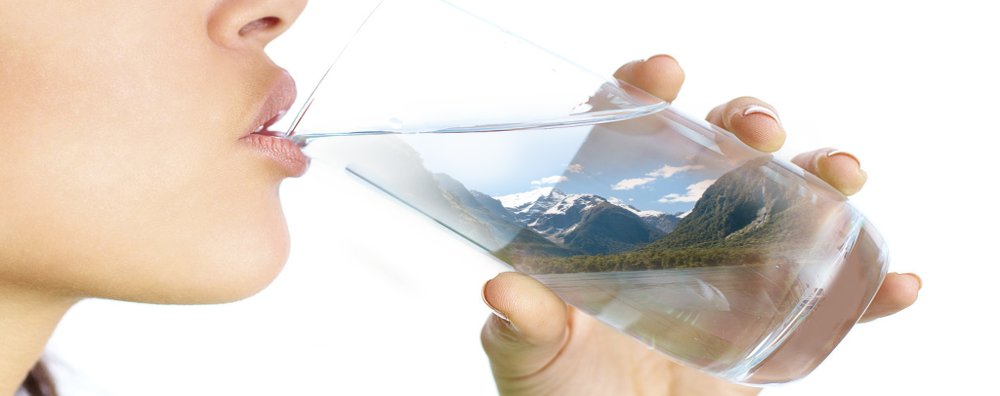
All Human Rights have their basis and foundations in freshwater security. Fresh water security is dependent upon the adequate quantity of fresh water. This is in turn dependent upon a functioning renewable, global water cycle.
It is unfortunate that within the Human Right to water debate, the ecological side of the equation is often overlooked. This is a significant oversight because regardless of who is responsible for governing and providing fresh water, if there are inadequate quantities of fresh water, how can water security be realised?
“On 28 July 2010, the United Nations General Assembly explicitly recognized the human right to water and sanitation and acknowledged that clean drinking water and sanitation are essential to the realisation of all human rights. The Resolution calls upon States and international organisations to provide financial resources, help capacity-building and technology transfer to help countries, in particular developing countries, to provide safe, clean, accessible and affordable drinking water and sanitation for all.”
The Right to Water emphasizes that water should be treated as a social and cultural good, and not primarily as an economic good. It also stresses that the manner in which this right is realized must be sustainable and in the interest of all, ensuring that the Right can be realized for present and future generations.
A future where freshwater is regarded as a finite resource and available only to a privileged few, is a very disturbing concept that should not be allowed to become reality.
“The human right to drinking water is fundamental for life and health. Sufficient and safe drinking water is a precondition for the realization of all human rights. Overcoming the world water crisis – achieving water, food and environmental security simultaneously – is one of the most formidable challenges for sustainable development.”
Agenda 21 included an objective to ensure that adequate supplies of water are maintained for the entire population of the planet, and specifies that the right to water includes access to a sufficient quantity and quality of water. According to Professor Peter Gleick in 1996, an adequate supply requires a minimum of 50 to 100 liters per person per day.
“All States parties have an immediate obligation to ensure satisfaction of, at the very least, the minimum essential level of the right to drinking water. In its General Comment No. 3 the Committee for Economic, Social and Cultural Rights asserted that even in times of severe resource constraints, vulnerable or marginalized groups must be protected by the adoption of relatively low-cost targeted water programs.”
However it is crucial to note that universal access to clean drinking water and sanitation is not the same as the Right to Water.
This was explicitly expressed in the Open Working Group 10 Sustainable Development meeting in the UN buildings in New York, between 31/3/14 and 4/4/14, when the Chinese government representative said:
“Water and sanitation should be addressed through an “access” approach, rather than a rights-based approach.”
Most of us take our right to water for granted. We also assume that the global water cycle will continue functioning and delivering our freshwater supplies as it always has. The present environmental and social conditions mean that we need to become more conscious and become more involved in preserving our water cycle and our common rights.

“The right to drinking water entitles everyone to safe, sufficient, affordable and accessible drinking water that is adequate for daily individual requirements (drinking, household sanitation, food preparation, and hygiene). The adequacy of drinking water should be interpreted in a manner consistent with human dignity, and not in a narrow way, by mere reference to volumetric quantities and technologies, or by viewing water primarily as an economic good.”
Governments have not only agreed upon obligation to supply fresh water in relation to maximum resources, they have also committed themselves to the responsibility of proactively protecting, safeguarding, and maintaining this vital resource. This necessitates the protection of all the vital ecosystems, which maintain the global water cycle and the protection of the cycle itself, so that adequate supplies of fresh water can be produced and provided.
“All human rights impose three types or levels of obligations on States parties: the obligations to respect, protect and to fulfill. The obligation to fulfill requires States parties to adopt the necessary measures directed towards the full realization of the rights. The obligation to fulfill (facilitate) means that States must proactively engage in activities intended to strengthen people’s access to and utilization of resources and means to ensure their livelihood.”
However regarding the adoption of necessary measures directed towards the full realization of the rights to water, there are major ecological factors, which have been overlooked. The protection and restoration of water resourcing ecosystems such as mixed mountain forests, rain forests and watersheds has not been prioritised and has often been largely neglected. This has been in favour of privatization and management schemes, which do not include securing these environmental crucial factors.
This approach is unsustainable and threatens the functioning of the global water cycle and with it the majority of life on Earth.
“It is now widely accepted that – on the one hand – poverty should not be seen only as a lack of income, but also as a deprivation of human rights, and – on the other hand – that unless the problems of poverty are addressed, there can be no sustainable development. It is equally accepted that sustainable development requires environmental protection and that environmental degradation leads directly and indirectly to violations of human rights.”
Since Rio+20 in 2012, it has been affirmed and clarified by experts that the ecosystems and environments which maintain essential services needed for the very survival of life on Earth, such as the hydrological cycle, are threatened with collapse if not given appropriate and immediate attention.
“Maintaining the integrity of ecosystems before they become compromised is an essential component of achieving water security and reducing the potential for conflicts. The continuous pace of human development is threatening the capacity of ecosystems to adapt, raising concerns that ecosystems will reach a tipping point after which they are no longer able to provide sustaining functions and services, and will become unable to recover their integrity and functions (Maas, 2012).”
Download: The Global Water Crisis: Addressing an Urgent Security Issue 2012.pdf
On October 28, 1982 the World Charter for Nature was adopted by UN member nation-states. It proclaims five principles of conservation by which all human conduct affecting nature is to be guided and judged. Principle 1 states:
“Nature shall be respected and its essential processes shall not be impaired.”
The global water cycle is an essential process that supports all other natural life processes.

To achieve the Human Right to Water, it is fundamental and vital to have an adequate supply of fresh water. This can only be achieved through protecting and securing the global water cycle and the ecosystems, which it relies upon to function effectively.
“We recognize the key role that ecosystems play in maintaining water quantity and quality and support actions within the respective national boundaries to protect and sustainably manage these ecosystems.”
The human right to adequate fresh water and the responsibility of governments to maintain this resource has been reiterated on numerous occasions.
Yet world governments are still neglecting their responsibilities of care regarding this critical issue and millions of people in both developing and developed countries cannot access adequate amounts of freshwater.
“We reaffirm our commitments regarding the human right to safe drinking water and sanitation, to be progressively realized for our populations with full respect for national sovereignty.”
“The call for the right to water came out of the suffering and struggles of people in thousands of communities around the world seeking the simple dignity of clean water for daily living and basic sanitation services, as well as the protection of their local water sources from government or corporate abuse. While it might seem at first glance to be a given that water is a human right, many powerful forces came together to prevent it from being officially recognized for many years.” (Maude Barlow, ‘Our Right to Water’)
In May 2013 the UN Secretary General spoke of the world running out of fresh water, yet although this was alarming, it was not new information to world leaders. In 2002 world governments were warned of the problems, which would occur if water-resourcing ecosystems were not given appropriate attention.
“Drinking water access and quality continue to be a fundamental problem, since some 3 billion people are expected to suffer water shortages by the year 2025; Many of the world’s current conflicts are caused, or exacerbated, by the lack or insufficiency of water; Moreover, the continuing deterioration of water resources is exacerbating existing poverty and discrimination. Realizing the human right to water in a sustainable manner must therefore be considered a vital component of poverty reduction policies to achieve sustainable development.”
Even with all this knowledge in November 2013 the US government used its power to eliminate essential elements within the contents of the Human Right to Water and consequentially undermined all human rights agreements.
“Until moments before its adoption the draft UN General Assembly resolution had recognised that the human right to safe drinking water and sanitation entitles everyone without exception to have access to sufficient, safe, acceptable, physically accessible and affordable water for personal and domestic use.”
Download: Amnesty International, Public Statement, Nov 2013.pdf
If these basic needs for life that affect all humanity are being deliberately removed from UN Resolutions, what is really being proposed when universal access to water is being shouted from government and UN pulpits? Even those who currently have access to basic drinking water do not have a guarantee of price regulation or continued access. In the meantime governments are favoring market solutions to resource allocations and major world banks and billionaires are buying up the world’s water supplies.
When considering water as a natural resource that is in a constant process of recycling; how can ownership rights ever have been considered, especially given that domestic water cannot be legally separated from the broader hydrological cycle?
If safeguarding the global fresh water cycle and the rights to fresh water are not enforced; the costs will be a huge loss of current human rights and an extraordinarily high loss of human lives.
We can either unite and take concerted global action or we can wait for the inevitable problems, which will occur if we wait for others to deal with this issue for us. Taking an ecosystem approach, as was agreed upon by world governments in September 2015 is still possible. This entails stopping the deforestation of mixed forests and the reforestation of mountain regions with mixed forests. These regions are where fresh water is stored in glaciers and snows and they are the sources of Earth’s rivers.
“By 2020, protect and restore water-related ecosystems, including mountains, forests, wetlands, rivers, aquifers and lakes”
Download: UN, Transforming our world: the 2030 Agenda for Sustainable Development.pdf
